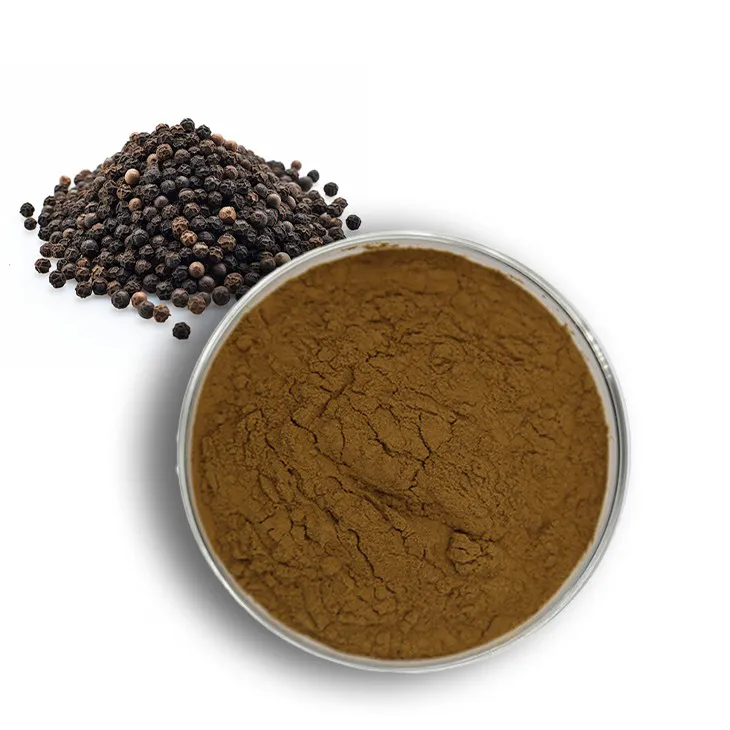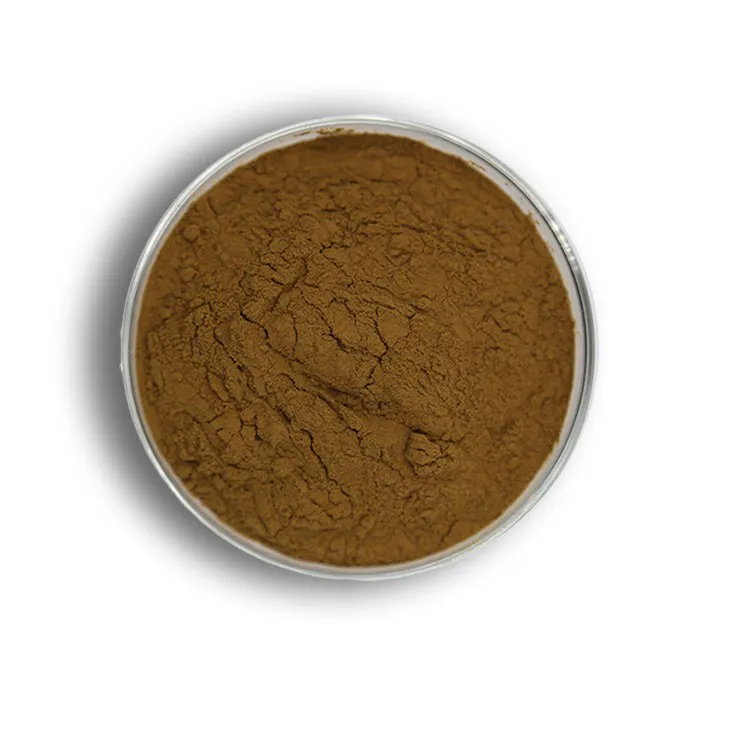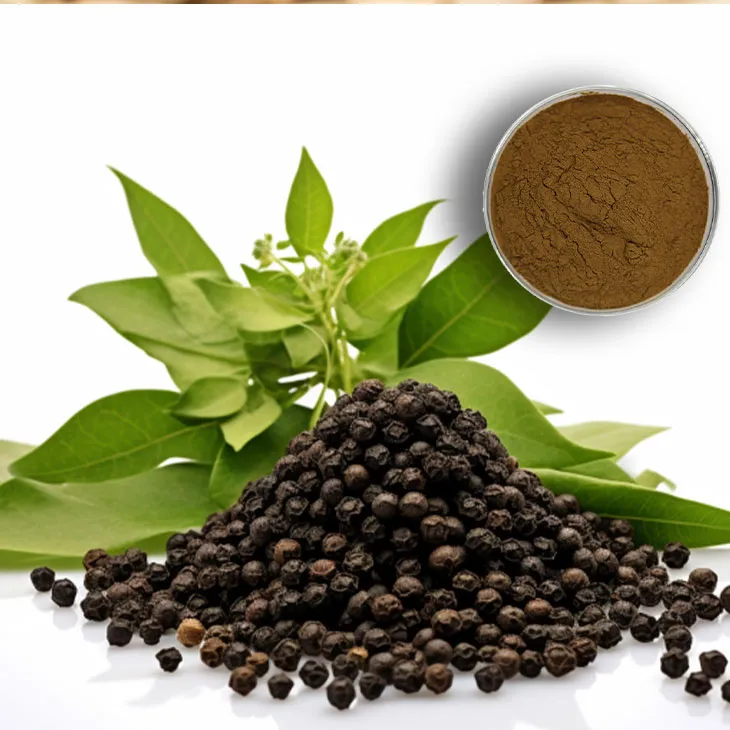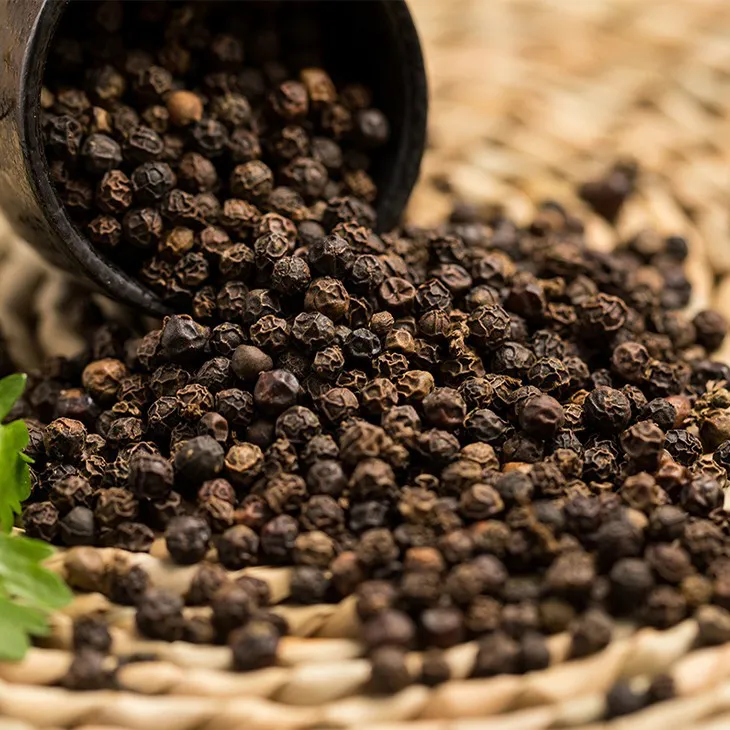- 0086-571-85302990
- sales@greenskybio.com
Black Pepper Extract: Uses, Advantages and Manufacturing Processes
2024-11-13

1. Introduction
Black pepper, known scientifically as Piper nigrum, has been a staple in human culture for centuries. Black Pepper Extract, derived from this well - known spice, has emerged as a substance with numerous applications. It is a concentrated form that retains and sometimes enhances the properties of black pepper. In this article, we will explore in detail the uses, advantages, and manufacturing processes of Black Pepper Extract.

2. Uses of Black Pepper Extract
2.1 Culinary Uses
Black pepper extract is an essential component in the culinary world. Flavor Enhancement is one of its primary functions. It is used in a wide variety of spice blends, such as curry powders, which are popular in Asian and Caribbean cuisines. In Western cooking, it is often added to seasonings for meat, poultry, and fish dishes. The extract imparts a characteristic pungency and depth of flavor that is difficult to replicate with other ingredients. It can also be used in marinades, where it helps to tenderize the meat while adding flavor. Moreover, in the production of processed foods like sausages and canned soups, black pepper extract is added to provide a familiar and appealing taste.
2.2 Medicinal Uses
- Antibacterial Properties: Black pepper extract has shown potential as an antibacterial agent. Research has indicated that certain compounds in the extract, such as piperine, may be effective against a range of bacteria. This could have implications for the development of new antibiotics or natural antimicrobial products. For example, in the fight against food - borne bacteria like Salmonella and Escherichia coli, black pepper extract might be explored as a natural preservative or a complementary treatment.
- Analgesic Effects: Although more research is required, there are indications that black pepper extract may have analgesic (pain - relieving) properties. Some traditional medicine systems have long used black pepper for pain management. In modern research, initial studies suggest that the extract may interact with pain receptors or inflammatory pathways in the body. However, further clinical trials are needed to establish its efficacy and safety for this purpose.
2.3 Cosmetic Uses
In the cosmetic industry, black pepper extract is gaining popularity. When applied topically, it is believed to have the ability to stimulate blood circulation. This property makes it a potentially valuable ingredient in products such as creams and lotions. By improving blood flow to the skin, it may contribute to a healthier complexion, as better circulation can help in delivering nutrients and oxygen to the skin cells. Additionally, it may also have a mild exfoliating effect, which can help in removing dead skin cells and promoting skin renewal.

3. Advantages of Black Pepper Extract
3.1 Rich in Piperine
The presence of piperine in black pepper extract is a major advantage. Piperine is a bioactive compound that has been the subject of numerous scientific studies. Enhanced Bioavailability is one of the key benefits associated with piperine. For example, when consumed with other nutrients, piperine can increase the absorption of those nutrients. It has been shown to enhance the bioavailability of Curcumin from turmeric. This means that when black pepper extract is combined with turmeric in a supplement or in food, the body can better absorb and utilize the Curcumin, which has its own set of health - promoting properties such as anti - inflammatory and antioxidant effects.
3.2 Basis in Traditional Medicine
Black pepper has a long history of use in traditional medicine systems around the world. This traditional use provides a solid foundation for modern research and development. For instance, Ayurvedic medicine in India has used black pepper for centuries to treat various ailments, including digestive disorders and respiratory problems. This historical use not only gives researchers clues about the potential health benefits of black pepper extract but also provides a cultural context that can enhance the acceptance of products containing the extract in different regions.

4. Manufacturing Processes of Black Pepper Extract
4.1 Procurement of Raw Materials
The first step in manufacturing black pepper extract is the procurement of raw black peppers. High - quality black peppers are sourced from reliable suppliers. These peppers are typically harvested when they are fully ripe to ensure maximum flavor and potency. The origin of the peppers can also influence their quality, with certain regions known for producing peppers with superior flavor profiles. For example, peppers from Kerala in India are highly regarded in the global market for their rich aroma and flavor.
4.2 Cleaning Procedures
Once the raw black peppers are obtained, they are subjected to cleaning procedures. This is crucial to remove any impurities such as dirt, dust, and other foreign particles. The cleaning process may involve washing the peppers with water and then drying them thoroughly. This step ensures that the final extract is free from contaminants that could affect its quality and safety.
4.3 Extraction Methods
- Maceration: This is a traditional extraction method. In maceration, the cleaned black pepper is soaked in a solvent. The solvents commonly used include water or alcohol (such as ethanol). The black pepper is left to soak in the solvent for a certain period, which can range from a few hours to several days. During this time, the active ingredients in the black pepper, including piperine, are drawn out into the solvent. Maceration is a relatively simple and cost - effective method, but it can be time - consuming.
- Microwave - Assisted Extraction: This is a more modern technique. In microwave - assisted extraction, the black pepper and the solvent are placed in a microwave - compatible container. The microwave energy is then applied, which heats the solvent and the black pepper rapidly. This rapid heating helps to break down the cell walls of the black pepper more quickly, allowing the active ingredients to be released into the solvent in a shorter time compared to maceration. Microwave - assisted extraction can significantly reduce the extraction time while maintaining the quality of the extract. It also has the potential to be more energy - efficient.
4.4 Filtration and Concentration
After the extraction process, whether by maceration or microwave - assisted extraction, the resulting liquid contains not only the desired black pepper extract but also other substances such as insoluble particles and excess solvent. The next step is filtration. Filtration is carried out to remove these unwanted substances, leaving behind a cleaner liquid that is rich in the active ingredients of black pepper. Following filtration, the liquid is then concentrated. Concentration can be achieved through various methods such as evaporation under reduced pressure. This process removes the excess solvent, resulting in a more concentrated black pepper extract that can be used in various applications.

5. Conclusion
Black pepper extract is a versatile substance with a wide range of uses, significant advantages, and a well - defined manufacturing process. Its uses in the culinary, medicinal, and cosmetic industries highlight its importance. The presence of piperine and its basis in traditional medicine are two key factors that contribute to its appeal. The manufacturing process, from the procurement of raw materials to the final concentration of the extract, ensures that a high - quality product can be obtained. As research continues, it is likely that new uses and benefits of black pepper extract will be discovered, further expanding its potential in various fields.
FAQ:
What are the main uses of black pepper extract in the culinary field?
Black pepper extract is a key ingredient in many spice blends in the culinary world. It is used to enhance the flavor profile of various cuisines around the world.
What are the potential medicinal uses of black pepper extract?
Medicinally, black pepper extract has been studied for its antibacterial properties, which could be useful in the development of new antimicrobial agents. It is also thought to have analgesic effects, although more research is needed in this area.
Why is black pepper extract beneficial in the cosmetic industry?
In the cosmetic industry, black pepper extract can be added to products like creams and lotions. When applied topically, it has the potential to stimulate blood circulation.
What is the main component of black pepper extract and what are its benefits?
The main component of black pepper extract is piperine. Piperine is responsible for many of its beneficial effects. It has been shown to enhance the bioavailability of certain nutrients, such as Curcumin from turmeric, which promotes overall health.
What are the steps in the manufacturing process of black pepper extract?
The production of black pepper extract starts with procuring raw black peppers and cleaning them to remove impurities. Then, the extraction process begins. Traditional methods like maceration involve soaking the black pepper in a solvent (such as water or alcohol) for a period of time to draw out the active ingredients. Modern techniques like microwave - assisted extraction can also be used to reduce extraction time while maintaining quality. After extraction, the resulting liquid is filtered and concentrated to obtain the final extract.
Related literature
- Black Pepper Extract: A Comprehensive Review of its Phytochemistry and Pharmacology"
- "The Manufacturing and Applications of Black Pepper Extract in the Food and Pharmaceutical Industries"
- ▶ Hesperidin
- ▶ citrus bioflavonoids
- ▶ plant extract
- ▶ lycopene
- ▶ Diosmin
- ▶ Grape seed extract
- ▶ Sea buckthorn Juice Powder
- ▶ Beetroot powder
- ▶ Hops Extract
- ▶ Artichoke Extract
- ▶ Reishi mushroom extract
- ▶ Astaxanthin
- ▶ Green Tea Extract
- ▶ Curcumin Extract
- ▶ Horse Chestnut Extract
- ▶ Other Problems
- ▶ Boswellia Serrata Extract
- ▶ Resveratrol Extract
- ▶ Marigold Extract
- ▶ Grape Leaf Extract
- ▶ blog3
- ▶ blog4
- ▶ blog5
-
Organic Tongkat Ali extract powder factory.
2024-11-13
-
How to make powder with ashwagandha extract.
2024-11-13
-
Rosehip extract manufacturers from China.
2024-11-13
-
The best cat's claw extract in nature.
2024-11-13
-
Chinese Dandelion Leaf Extract Suppliers.
2024-11-13
-
Shikone Extract
2024-11-13
-
Grapefruit Seed Extract Powder
2024-11-13
-
Reishi mushroom extract
2024-11-13
-
Grape Leaf Extract
2024-11-13
-
Yohimbine Bark Extract
2024-11-13
-
White mustard seed extract
2024-11-13
-
Milk Thistle Extract
2024-11-13
-
Sea buckthorn oil
2024-11-13
-
Maca Extract
2024-11-13
-
Dan Shen Root Extract/Salvia Root Extract
2024-11-13





















